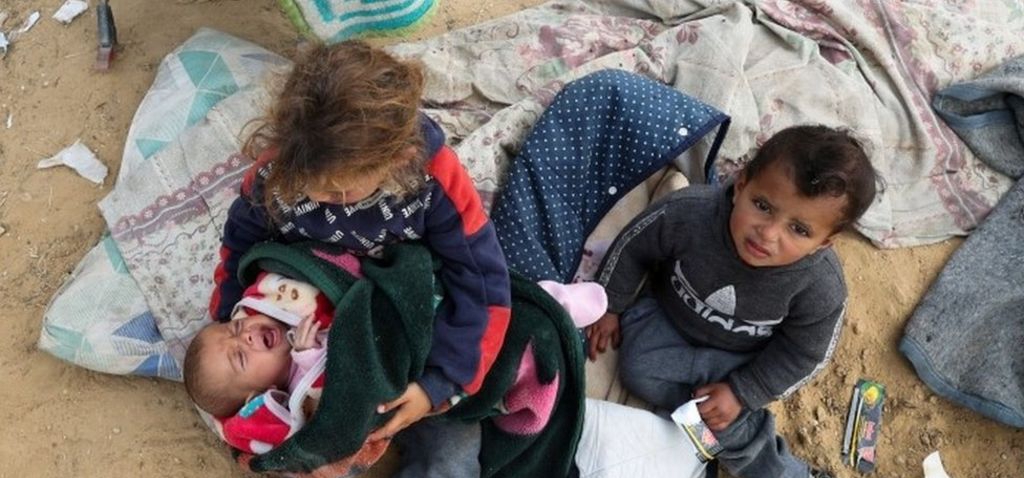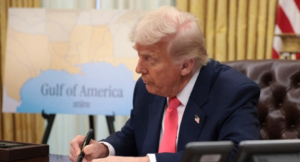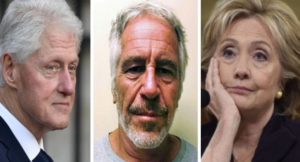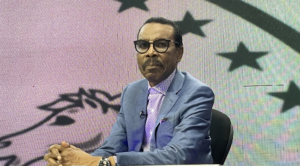
Negotiations for a ceasefire between Israel and Hamas in Gaza have resumed in Cairo, Egyptian media say.
Senior officials from the US, Israel, Egypt and Qatar are meeting as Israel faces strong international pressure to stop its bombardment of the southern Gaza city of Rafah.
About 1.5 million people are crammed into this small border town, amid fears of an Israeli ground offensive.
Israel’s PM rejected as “delusional” ceasefire proposals by Hamas last week.
Benjamin Netanyahu said “total victory” was possible in Gaza within months.
He later ordered Israeli troops to prepare to expand their ground operation, and vowed to defeat Hamas gunmen hiding in Rafah.
But UN human rights chief Volker Türk said any assault on the city would be “terrifying” and many civilians “will likely be killed”.
US President Joe Biden has called for civilians in the area to be protected.
Rafah has come under heavy Israeli air strikes in recent days, with deaths and injuries reported.
The discussions in Cairo are continuing despite Israel’s rejection of Hamas’s terms.
Mr Netanyahu has sent his intelligence chief, David Barnea, to the talks to try to make further progress – Israeli media said he did so under American pressure.
He is joined by the head of the US Central Intelligence Agency William Burns, Egyptian intelligence officials and Qatar’s Prime Minister Mohammed bin Abdulrahman Al-Thani.
There is a framework for a temporary truce on the table, involving releasing Israeli hostages in exchange for Palestinian prisoners and a period of calm.
Qatar and Egypt, with US support, have been going back and forth between Israel and Hamas to try to broker a deal.
Israel says 130 hostages are still unaccounted for out of the 253 taken by Hamas-led gunmen during the 7 October attacks on southern Israel. A number of hostages have been released – including most recently two male Israeli-Argentines – but some have died.
At least 1,200 people were killed during the Hamas-led attacks.
Israel launched military operations in the Gaza Strip in response to them. Some 28,473 Palestinians have been killed and more than 68,000 wounded in Gaza since 7 October, according to the Hamas-run health ministry there.
More than half of the Gaza Strip’s population of 2.3 million is now crammed into Rafah, on the border with Egypt, which was home to only 250,000 people before the war between Israel and Hamas.
Many of the displaced people are living in makeshift shelters or tents in squalid conditions, with scarce access to safe drinking water or food.
Alongside the US, a number of countries and international organisations have warned Israel against launching its planned offensive.
UK Foreign Secretary David Cameron on Monday said Israel should “stop and think seriously” before taking further action in Rafah.
EU’s foreign policy chief Josep Borrell urged allies of Israel to stop sending weapons, as “too many people” were being killed in Gaza.
And on Tuesday South Africa asked the International Court of Justice (ICJ) to consider whether the planned Israeli offensive required additional emergency measures to protect Palestinians’ rights.
Last month the ICJ ordered Israel to take all measures to prevent genocidal acts in Gaza, in a case brought by Pretoria.






